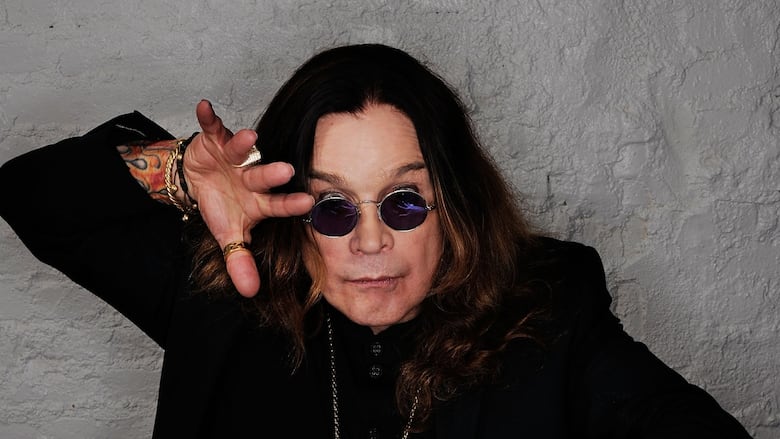The unique contributions of Ozzy Osbourne to heavy metal and reality TV
Music journalists discuss the legacy of the Prince of Darkness

Yesterday, Ozzy Osbourne died at age 76. He is best known as the frontman of Black Sabbath and godfather of heavy metal, but he later became a solo artist and a reality TV star.
Today on Commotion, guest host Eli Glasner sits down with Toronto rocker Danko Jones, culture critic Niko Stratis and music journalist Melissa Vincent to discuss the legacy of Ozzy Osbourne.
We've included some highlights below, edited for length and clarity. For the full discussion, listen and follow Commotion with Elamin Abdelmahmoud on your favourite podcast player.
Eli: Ozzy's voice, you can't get away from it — the moment you hear it, it's singular. But it comes from Birmingham, working class roots. This is a guy, he was caught up in burglary, all sorts of mischief. Niko, do you hear that when you listen to him sing? Can you hear that in his vocals?
Niko: Oh, absolutely. The best voices are ones that have that texture. A good voice tells a story, and it tells where it's been …. Ozzy had a very working class background, he grew up in Birmingham. His voice really tells a story of where he came from, this working class background. It is this very learned thing that you can't really teach, and you can't hone it, and you can't force yourself to sound like that. It is a very authentic thing, which the best voices always do. It's a harder thing to come by now. You can't imagine one of the biggest bands in the world having somebody on stage who is maybe not a "technically" great singer, but is a beautiful singer, whose voice always tells a story.
It's such a unique thing that we have lost, the voice of Ozzy. Even if you're not a big Sabbath person, you hear it, you know what it is. That's the mark of something really beautiful left in this world: if you hear it, it's immediately recognizable, you know what it is.
Eli: Melissa, the lyrics [from Paranoid], "Happiness, I cannot feel / And the love to me is so unreal," some dark stuff there. Why did this song blow up?
Melissa: Extreme music across all genres, it's uniquely capable of shining a light on things that people feel — sometimes they feel in ways that resonate in the body, but there's no way for them to articulate it in words. A lot of metal does that through screaming. And even when screaming is tonally impossible to understand, somebody can capture the feeling of anguish or despair with a really razor thin point of precision.
Paranoid, which on the surface is one of the most recognizable riffs of the 20th century, I feel like it functions like this car that is revving its engine. And I feel like part of what makes it so appealing is that this song is teasing you, in a way. It's sort of like, "Do you want to go further? Do you want to go heavier? Do you want to go more extreme?" … I think we get this real sense of how dynamic Ozzy is as a vocalist. Where at the same time, there's grit, there's the sense of poetry, where it's really difficult to tell where the line between the protagonist and antagonist ends, especially if he's talking about something that feels like it's so evil.
Eli: Danko, how did that show [The Osbournes] change reality TV? Do you think it had an impact?
Danko: Well, first of all, I was totally against it when I first saw it. I thought the veil had been pulled from my childhood, and I didn't want to see the wizard behind it, but I couldn't take my eyes off it. And I remember JC, our bass player, he downloaded some of the episodes, and we were on tour, and I think we were in a McDonald's or a Burger King, and we just watched it there. I couldn't believe that this had been exposed. I was dead against it. But again, I watched every episode.
It created reality TV. It solidified it, with American Idol and Survivor. Ozzy's credited with starting heavy metal, and he kind of can be credited with starting reality TV. And I don't know if I like that. I like my Ozzy scary, to scare the living crap out of me. I don't want to meet him. When we did play with him, I was not in any hurry to meet him. We played with him four times. I never met him at the show.
You can listen to the full discussion from today's show on CBC Listen or on our podcast, Commotion with Elamin Abdelmahmoud, available wherever you get your podcasts.
Panel produced by Jane van Koeverden.

